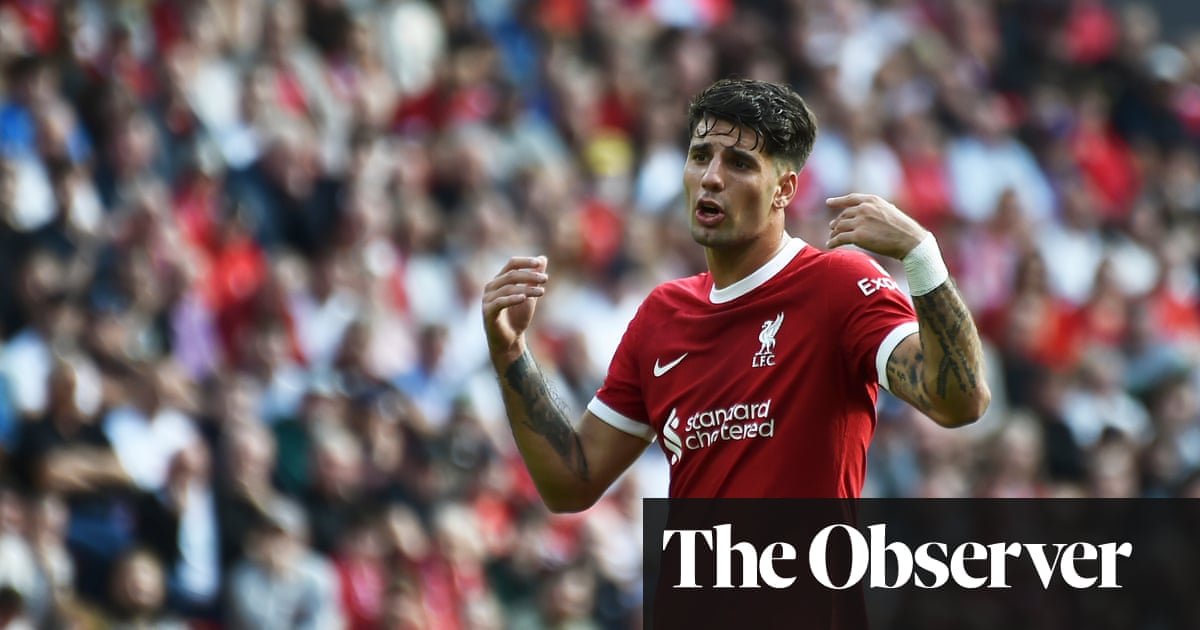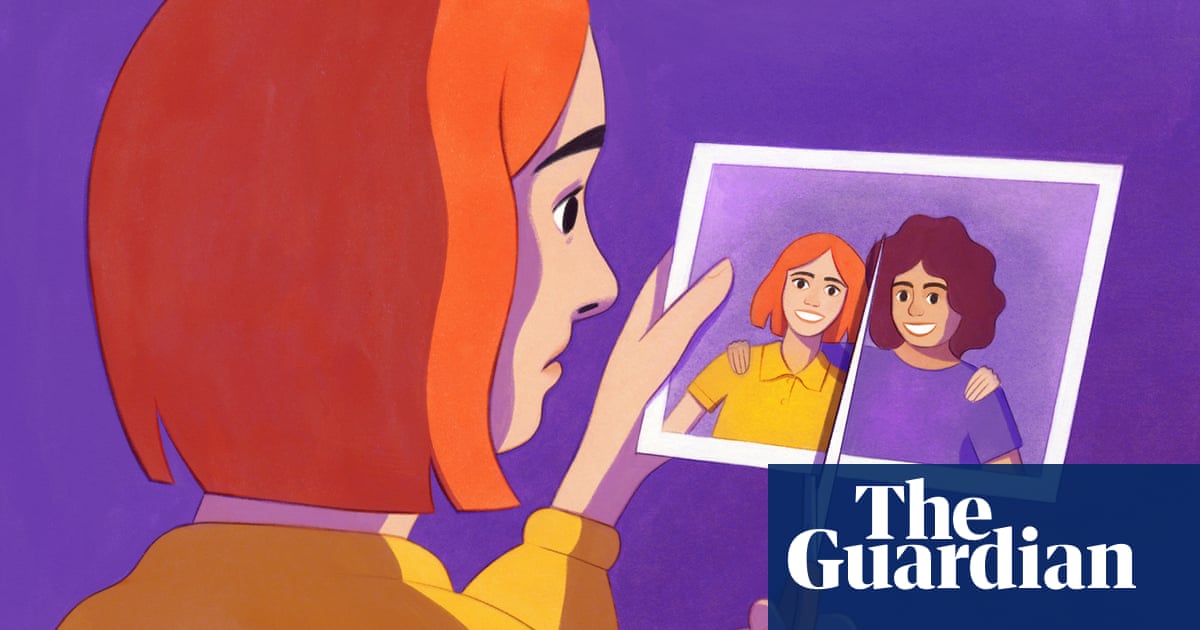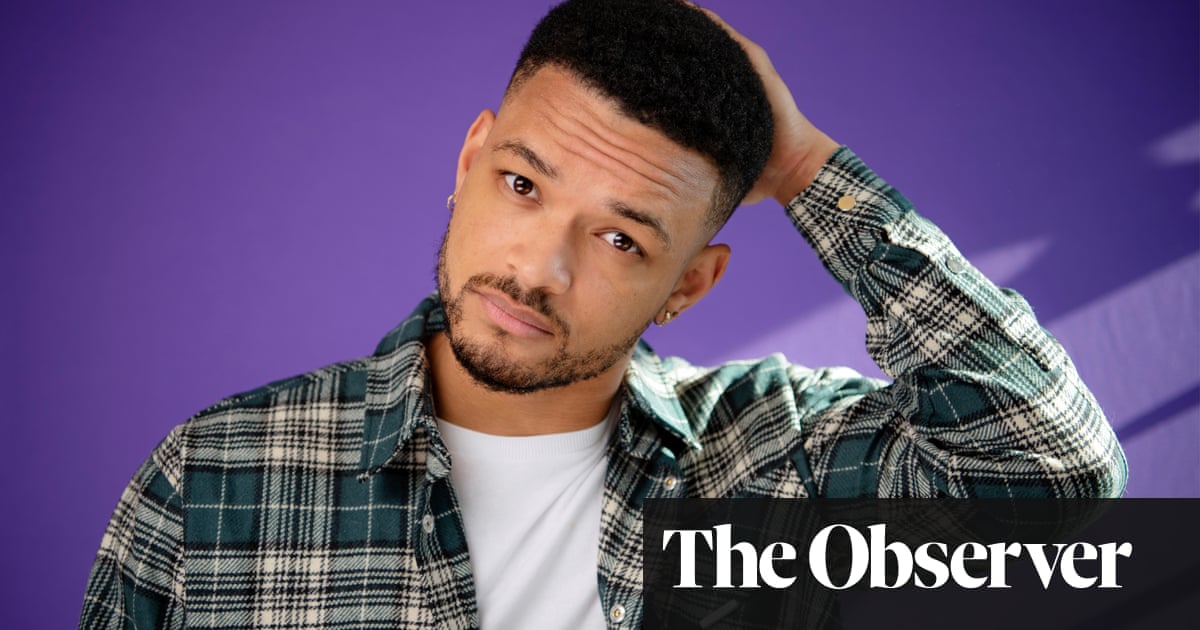
It was in the middle of the pandemic that Murray Bartlett began wondering if he would ever work as an actor again. “I thought: ‘What do I do? Do I teach drama?’” He and his partner had left New York for Provincetown, Massachusetts, not long before, unsure of whether the move would jeopardise his potential roles. The virus added another note of uncertainty.
In the grip of this career crisis came the call that led to the most compelling role he has had. If any television scene can sum up the mood of our times, it is Bartlett, as the harried luxury hotel manager Armond, pooing in the suitcase of an obscenely privileged, obnoxious guest. Armond begins the six‑part series, The White Lotus, determined to do his job well, to please all the necessary people. But, as catastrophe spreads, his eyes glitter, his mood changes and it is clear propriety is about to be set aside. His descent from assured, capable, sober hotelier to rogue manager, high on drugs stolen from two teenage guests, set on sabotaging a deeply unpleasant honeymooner, is spectacular – and probably the TV moment of the year.
It is not often that an actor gets their breakout role at 50, but, in light of his extraordinary performance, Bartlett seems to have been underused for most of his career. In 2002, a guest role in Sex and the City (as a shoe importer whom Carrie meets in a gay club) brought him global attention; he followed it up with long-term roles in the US soaps All My Children and Guiding Light. In 2014, he was one of three leads in HBO’s Looking – listed by this newspaper as one of the 100 best shows of the 21st century – and, in 2019, he took the role of Michael “Mouse” Tolliver in Netflix’s reboot of Armistead Maupin’s Tales of the City.
The part of the hotel manager thrilled Bartlett. “Armond represents that part of all of us that is like: ‘What the fuck? What are we doing? What is going on?’ He’s waking up to the insanity of the nightmare that he’s in and just can’t hold up the public face any more.” The character has an “incredible trajectory”, he says: “It’s a dreamy thing for an actor to look at – for me, anyway – because I guess I haven’t had many opportunities to do that.”
Armond starts the series as a calm, proficient, moustachioed hotelier, slick in a pink blazer and floral shirts. But the guests start to grind him down – in particular the bratty Shane (played by Jake Lacy), a rich kid who can’t get over the fact that the suite he wanted was double‑booked and he no longer has his own plunge pool.
As the passive-aggressive conflict escalates, Armond relapses after five years of sobriety. He propositions the father of the teenage guests whose cocktail of ketamine and prescription drugs he is taking, as well as Dillon, a porter. As the chaos continues, he resorts to sabotaging Shane and his wife’s stay.
Would Bartlett have acted similarly in Armond’s shoes? “No, I think I would have internalised it all,” he says. “I’m too much of a people pleaser and I just would have been eaten up inside by it. I would have left that job years ago; I don’t think I would have lasted as long as Armond did.”
Although Armond is certainly not a hero in the purest sense – he has some sleazy tendencies – it is hard not to sympathise with his plight. I ask what he felt about filming the defecation scene, when his character bids farewell to all accepted social conventions. “There’s something very satisfying as an actor about being given the licence to fully follow through on what this character has in mind or what they’re feeling,” says Bartlett. He wasn’t fazed about performing the scene when he read the script. “It’s the moments after, where you’re like: ‘Oh, hang on, that means I’ve got to be in a room with 100 people, shitting in a suitcase. That’s gonna be weird.’”
Bartlett tapped into his experiences with addiction to try to understand Armond. “I have people in my life who have addiction issues and, being a porous person, I tend to absorb other people’s emotional states,” he says. “And so, although I don’t know, truly, what it’s like from the inside, I feel as if I’ve had a lot of insights through people in my life and my own relationship to addiction.”
Bartlett says he has an emotional addiction, which manifests as a need to be in relationships. “I have been through phases in my life where I felt that more strongly. I don’t struggle with addiction in the traditional sense, but I feel very aware of those tendencies in myself at different times in my life,” he says. “When I’ve broken up from relationships, I’ve completely fallen apart at times, because that’s my drug. If you don’t have substance-addiction issues, it’s hard to fully understand what that is, but, emotionally, I feel as if I can get a sense.”
To help prepare for the role, Bartlett also drew on his time working in the service industry. “I was a waiter and a bartender. I had good experiences; not everyone was awful,” he says. “But there were always those experiences where you just notice people in this position of slight power, or they feel as if they’re entitled to something, and they treat you like shit.”
Has he been nicer to service staff since working on the show? “I’m pretty sure I’m not the dick person; I think I have more self-awareness than that,” he says. “However, one of the great things about this show is that we all have those characters, or elements of those characters, in us that we need to be mindful of. There are aspects of us that are just there and it’s a constant thing to choose to favour the better sides of our nature.”
Bartlett first realised he loved performing when he was a child, after his older brother knocked out two of his front teeth. A group of kids were gathered around a spider on a rock in Perth, Australia, where he grew up. His brother swung back a hammer to squash it and … well, you can work out the rest. He lost two more front teeth not long afterwards by “spinning around in our basement in a blanket to music”.
He had to wait years for his adult teeth to grow in their place. When they did, he still struggled to pronounce “S” properly (“I said: ‘Eth’”), so he went to see a speech therapist. “She was this amazing woman who had me doing monologues and saying poetry and I just loved it,” says Bartlett. A path to his future career opened up through theatre camps, acting schools and auditions.
He is speaking, via video call, from his home in Provincetown, armed with a smoothie to help wake him up. He has been having trouble sleeping – anxiety dreams about producers critiquing his piano skills. He is warm and gracious; he says having his teeth knocked out “feels fated now, because I love being an actor”.
Bartlett was born in Sydney and moved to Perth when he was four. He was “very lucky and very loved”, particularly by his mother, who “made me feel as if I could be whoever I wanted to be”. Coming out as gay to her was never an issue; his mother had a lot of gay friends and he had plenty of role models.
“My problems started when I went to acting school and became an adult. I was like: ‘Oh fuck, why doesn’t everyone love me like my mum does?’” He grins broadly.
While coming out to his mother was “very easy”, coming out to his father was “a little more complex, because he has religious beliefs that don’t – that struggle with people being gay. So that was a challenge.” Has his father come to accept that his son is gay? “He loves me, I know that. And I love him,” says Bartlett. “I think it’s a tricky thing, to come to some peace and acceptance of other people’s differing views of the world, or their belief system, without backing down from what I believe.
“I’m gonna, you know, try my best to not … I found it very painful for many years …” he pauses and looks away. He is silent for about 30 seconds. When he turns back to the screen, there are tears running down his cheeks. “I didn’t realise it was still painful, I guess.”
We can move on if it is too painful, I say. “No, it’s all right, I actually want to finish,” he says, composing himself. “It’s loaded with a lot of other stuff, like being in this country and it’s very divided. And how do you deal with that without turning the other person into an enemy? How do you put your own personal stuff aside and just choose to love someone? That’s what my challenge is with my dad.
“I’d like to have a relationship where I feel unconditionally loved in that way. And I know that he feels that he loves me unconditionally. But, for me, it’s a little more complex than that. But I know that he’s very proud of me,” he says.
Bartlett’s acting career began in the early 90s, with recurring roles in Home and Away and Neighbours, before he moved to New York in 2000 and landed the Sex and the City role. Bartlett wasn’t vocal about the fact that he was gay, but neither did he hide his sexuality. Some at the time would have seen a gay actor playing a gay role as career-ending, but it never crossed Bartlett’s mind.
“I love that show. I was just super-excited,” he says. “Maybe that’s something I should have considered. But I don’t think so. I guess it just was not an issue for me.”
After Sex and the City, he worked mainly on All My Children and then Guiding Light. He had fun, while the volume of episodes – more than 250 in the case of Guiding Light – helped him overcome the need to fixate on past performances. Nonetheless, he worried about how this work was perceived. “I guess you always want to be seen by your peers as doing something that’s wonderful, and I wondered how some people would respond to it,” he says.
Did the lack of more high-profile roles frustrate him? “Definitely, at times. But that’s the path that you choose. You learn a lot from being rejected a lot, which is what you do as an actor. Most of the time, you’re not getting the jobs.
“There are times when you think: ‘Oh well, maybe this is it – maybe I’ve gone as far as I can go,’ or: ‘Is this practical any more?’” he says. “There were times when I didn’t have those opportunities [such as The White Lotus] where I was like: ‘I feel as if I can do a lot more and I want to be able to show that.’ And so there were times I was like: ‘Maybe that’s just not my path.’”
In roles such as Dom in Looking, which explored the nuances of gay life for three men in San Francisco, and the gay protagonist Mouse in Tales of the City, Bartlett has found meaning in “trying to show intimacy, especially between men, in a way that feels authentic and feels loving and feels connected, in a way that I feel we don’t see enough”. This includes a scene in The White Lotus in which Armond is found rimming Dillon over his desk.
“I hope that we are seeing more freedom of expression in that way, thanks to Queer as Folk and Tales of the City and The L Word – all the shows that have come before that are slowly nudging those boundaries, so that we don’t have to pretend that those things don’t happen, or hide them away.”
Up next for Bartlett is a part in another HBO drama, The Last of Us. Given the hype – it is based on the critically acclaimed and hugely successful video game of the same name – it will probably see Bartlett’s star shine brighter still. It has taken some time, but it feels as if he has finally had his big break.
“It’s definitely a surprise,” he says. “It’s not like I expected it to happen, for sure. But now that it has happened, it feels like it’s really good timing … I’m a bit wiser. I’m anchored in myself.”
Bartlett says he is enjoying getting older – “I mean, I get a few more aches than I used to” – but the week before his 50th birthday came with a period of “inner turmoil”.
“It’s the nature – for me, at least – of hitting those milestones where you reflect back and think: ‘Well, am I where I want to be in my life?’ And I am,” he says. “We made the choice to move out of the city; I’m in nature again, which I feel is my natural habitat. I’m in a wonderful relationship. I had this amazing opportunity to do this job. Reflecting back, I just felt incredibly lucky and happy to be where I am.”












